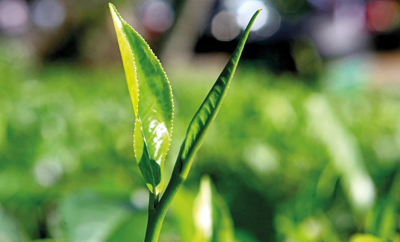Resurrecting the tea industry under new President
I would like to offer my humble suggestions to new President Gotabaya Rajapaksa to help the tea industry to add US$10 billion per annum to the national GDP. The Ceylon Planters Society (of which I am a member) has given a basic plan to successive governments on this matter. 
The industry which had 300,000 employees in 1993 now has just 140,000 today. The reason for reduction is mainly due to job dissatisfaction.
Employees are asking for a means of earning more and not higher wages. My belief is that Rs. 50,000 could be earned by a tea plucker if the productivity is improved. Our national tea yield has improved since privatisation to 1600 kg per hectare but can be doubled with little effort.
The need to develop a standard to soil and satellite-based monitoring with IT/ICT usage for real-time decision-making is essential.
It’s possible to double the 300 million MT of current production through the right strategies.
The definition for the usage of refuse tea (RT) is actually wrong. This tea is good for human consumption. Another Rs. 300 million is lost to the industry annually because of this confusing name. The so-called RT is highly demanded for in the production of iced tea cans. Since the aluminum cans are produced within the country in billions of quantities ice tea canning is something the industry could look at.
Since we are hand-plucking green leaf and many countries are not, the tanin in our tea is high. Being a beverage we should have gone in for labelling (like any other beverage) long years back. That would have helped us to market our tea on its value for money concept. Medically this tanin and polyphenols in tea helps to develop happy hormones in our brains. Anti-aging is also due to anti-oxidants. But we waste all that due to not adding value.
Now that climate change has come we need to hire Bsc Agriculture graduates as trainee planters. We are extremely happy to note that the new President is going to ensure professionalism.
We need HRM concepts to be used in plantations management. Strategic management competence must be demonstrated from the ministry downwards.
We can do it provided the leadership creates an enabling working environment with globalisation and a knowledge economy in mind.
We can expand growth of rubber, coconuts, cinnamon, oil palm, sugar cane and other export agri crops with the right policies. Cinnamon and king coconuts doesn’t grow anywhere else in the whole world. Are we making good use of it?
It’s important that all involved in the plantations industry are well aware of plant issues and the science behind, which is different to politics. It’s politics that has ruined the industry for the past 45 years since nationalisation of estates. Since an estate is a country within a country there are multiple opportunities for highly paid white collar jobs if the new President empowers the right people to execute meaningful strategies.


